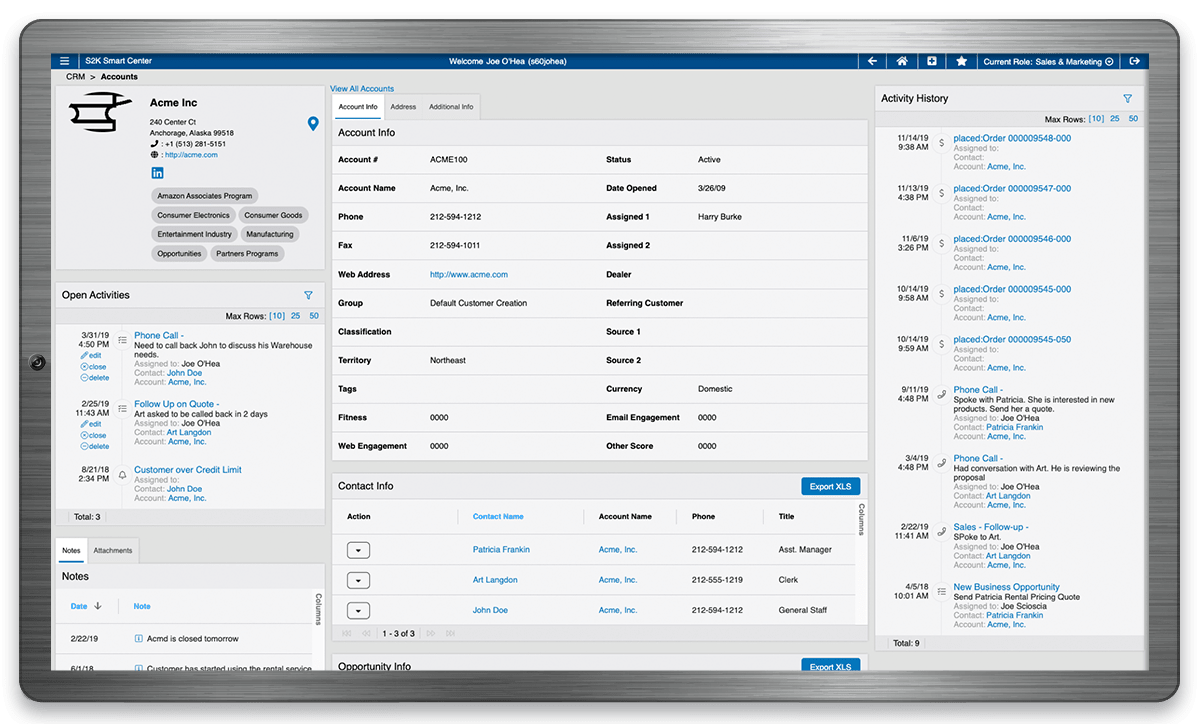CRM Applications Demystified: A Detailed Decision Manual
Choosing a appropriate CRM software might appear like a complex undertaking, especially with the wide range of options on offer in the current landscape. Customer Relationship Management (CRM) systems serve as vital tools that enable businesses manage their interactions with customers, optimize processes, and boost profitability. However, each organization has unique needs and characteristics, rendering the selection process vital for success.
In this guide, we will lead you throughout a step-by-step method to determining the best CRM solution for your business. By clearly comprehending what features to look for and how to assess your company's particular requirements, you can arrive at an informed decision that aligns with your goals. Whether you are a start-up business or a large enterprise, a suitable CRM system can improve your customer relationships and propel your business forward.
Understanding CRM Solutions
Customer Relationship Management solutions, or Customer Relationship Management software, aims to aid businesses oversee their engagements with clients and prospective customers. This software acts as a unified system to gather, analyze, and utilize customer data. By combining diverse features, such as sales, advertising, and customer support, this solution optimizes operations, enhances interaction, and increases overall efficiency.

One of the key benefits of this software is its capability to deliver insightful insights into customer behavior and likes. By collecting information from several touchpoints, businesses can build detailed summaries of their clients. This information aids in customizing advertising approaches, customizing interactions, and eventually, building more robust relationships with customers. Businesses can track engagements, schedule follow-ups, and oversee prospects successfully, contributing to better client contentment.
Choosing the best CRM software necessitates comprehending your organization requirements and goals. Different software options feature varying capabilities and options, such as automated processes, reporting, and integration options. It is essential to assess the exact requirements of your organization, such as staffing and budget, to make sure that the selected solution matches your strategic vision and facilitates drive company expansion.
Main Features to Look At
When selecting CRM applications, it is important to prioritize user-centered design. A simple interface can substantially impact the acceptance rate inside your company. Dynamic Digital Solutions and ease of use help employees quickly adapt to the system, leading to boosted productivity. Consider solutions that offer personalized dashboards, simple drag-and-drop features, and clear workflows to streamline daily tasks.
An additional essential aspect to assess is the integration features of the CRM system. In the modern digital landscape, businesses use a variety of tools and platforms. Choosing a CRM that seamlessly integrates with your current systems, such as email marketing services, social media platforms, and accounting software, can improve efficiency and data flow. Seek out solutions that provide powerful APIs and custom connectors to confirm compatibility with your current technology stack.
Finally, reporting and analytics capabilities should not be neglected. Effective CRM systems offers thorough reporting tools that allow you to monitor metrics such as sales performance, customer engagement, and marketing effectiveness. Real-time analytics enable you to make informed decisions and adapt strategies as needed. Ensure the CRM you consider provides flexible reports and dashboards that can be adapted to your unique business needs, enabling you gain valuable insights into your customer interactions.
Evaluating CRM Software
When evaluating Customer Relationship Management software options, begin by defining your business needs and goals. Consider the particular features that will boost your processes, such as customer tracking, analytics, or compatibility with current tools. Involve key participants from sales, marketing, and customer service to gather opinions on what tools are most essential for their daily tasks.
Next, assess the capacity of the options you are considering. As your company grows, your Customer Relationship Management should adapt with it. Look for software that can accommodate increasing user numbers and expanded features without causing disruptions. It's also advantageous to explore personalization options, enabling you to adapt the Customer Relationship Management to your specific methodologies and operations.
Finally, utilize trial periods or demonstrations offered by CRM vendors. This practical experience allows you to assess user-friendliness and review customer support. Interacting with the software directly gives a clearer understanding of how well it aligns with your company needs, helping you to make a more informed decision.